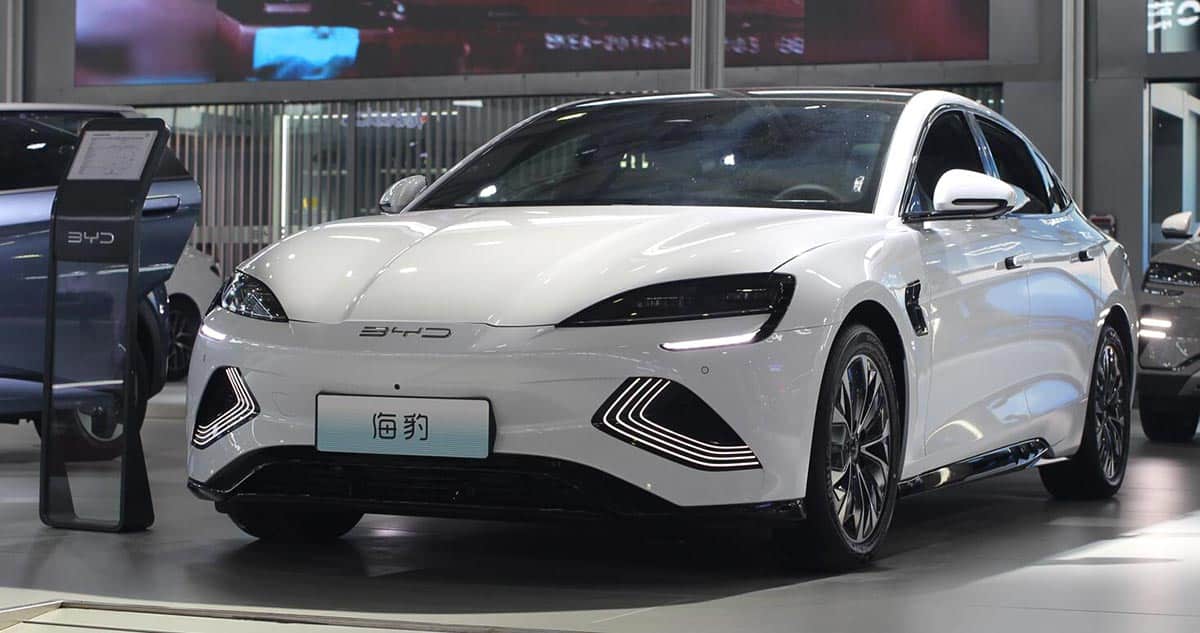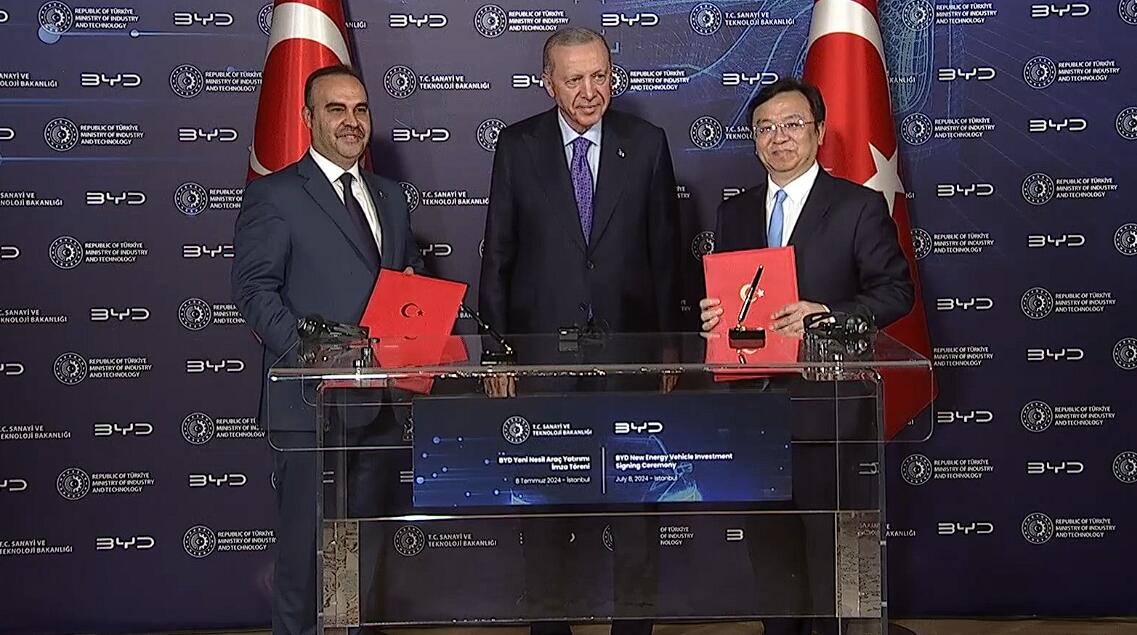BYD's Turkish plant has a planned annual capacity of 150,000 vehicles, and the signing was witnessed by the Turkish president.

BYD (HKG: 1211, OTCMKTS: BYDDY) will build an electric vehicle (EV) plant in Turkey to further expand its international presence.
The Chinese new energy vehicle (NEV) maker signed an investment cooperation agreement with the Turkish government on July 8, which was witnessed by Turkish President Recep Tayyip Erdogan, according to a statement overnight.
BYD will invest about $1 billion in Turkey to build an NEV production site with a planned annual capacity of 150,000 vehicles, which will go into production by the end of 2026, according to the company.
In addition to the NEV that plant, BYD will also build a research and development center in Turkey.
Turkey is Europe's third-largest exporter of automobiles, with annual exports of more than $35 billion, BYD said.
Turkey is also one of the automotive industry's gateways to the European market through the customs union and has signed free trade agreements with 23 European countries, it said.

Bloomberg first reported BYD's plan on July 5, saying that the NEV maker will build the production base in Manisa province in western Turkey.
BYD's new plant in Turkey could give it easier access to the European Union, with which Turkey has a customs union agreement, Bloomberg's report noted.
There's also a domestic market to serve, with EVs accounting for 7.5 percent of Turkey's car sales last year and a population of nearly 90 million, the report said.
Notably, in March 2023, Turkey imposed an additional 40 percent surcharge on tariffs on EVs imported from China, raising the tariff to 50 percent.
On June 8, Turkey announced a presidential decision indicating the country's decision to impose an additional tariff of 40 percent on cars imported from China, with a minimum additional tariff of $7,000 per vehicle, which would come into effect on July 7.
Turkey's Ministry of Commerce said at the time that the tariffs were aimed at increasing the market share of domestically produced vehicles and reducing the current account deficit.
On July 5, Turkey eased tariffs on Chinese car imports to encourage investment, according to Bloomberg.
BYD's signing with Turkey comes at a time when it faces higher tariffs in Europe.
On July 4, the European Commission announced that it would impose temporary countervailing duties on imports of battery electric vehicles (BEVs) from China starting July 5.
Different car companies face different rates, with BYD at 17.4 percent, the same rate as what the European Commission pre-disclosed on June 12.
After quickly becoming China's largest NEV maker over the past few years, BYD is building factories in several overseas markets in an attempt to expand in global markets through localized production.
On January 26, BYD announced the start of production at its plant in Uzbekistan, and on July 4, BYD's Thailand plant went into production.
In addition to these two plants, BYD is also building passenger car plants in Hungary and Brazil.
